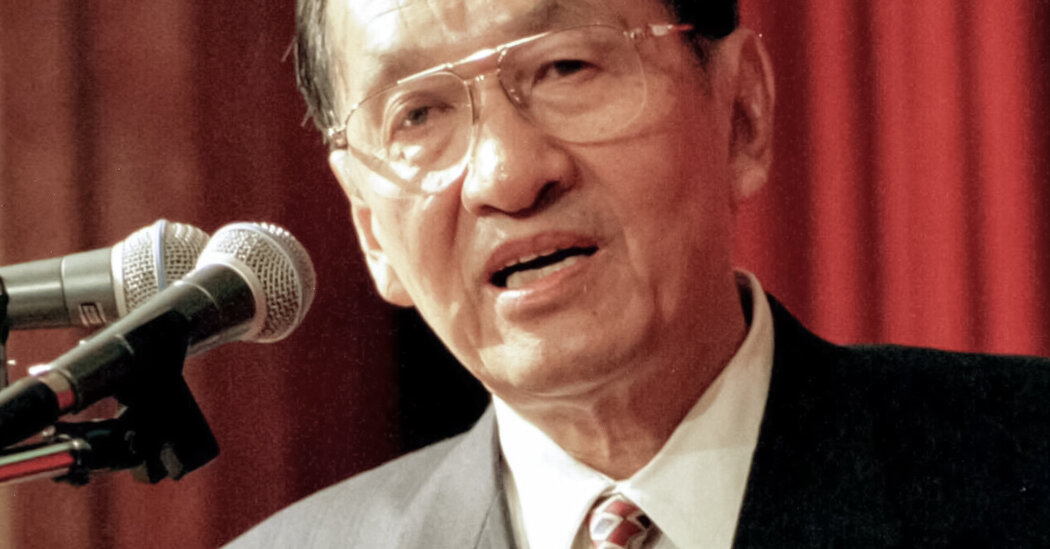Peng Ming-min, Fighter for Democracy in Taiwan, Dies at 98
By that time Mr. Peng had been blacklisted from returning to Taiwan, after a military court in 1964 convicted him of sedition over his involvement with two of his students in the printing of a manifesto calling for the overthrow of the Republic of China government and the establishment of a Taiwanese democracy. American pressure on Chiang Kai-shek to release Mr. Peng had led to his transfer from an eight-year prison sentence to house arrest in 1965. With help from Amnesty International, he escaped in 1970, fleeing to Sweden.
The United States was the next stop for Mr. Peng, who took up a professorship at the University of Michigan in Ann Arbor. While there, he wrote what would prove to be an influential autobiography, “A Taste of Freedom” (1972). In 1981, he co-founded the Formosan Association for Public Affairs, a lobbying group that remains active today. (Formosa is another name historically used for Taiwan.)
In November 1992, following the end of 38 years of martial law in Taiwan and the death of Chiang’s son and successor, Chiang Ching-kuo, Mr. Peng returned to Taiwan, where he was welcomed at Chiang Kai-shek International Airport by a crowd of about 1,000. He joined the Democratic Progressive Party two years later, before his failed presidential bid.
In the 2000 election, Taiwan chose the Democratic Progressive candidate Chen Shui-bian as president. He was the country’s first president who was not a member of the Kuomintang. Mr. Chen made Mr. Peng an adviser in acknowledgment of his contributions to Taiwan’s democratic struggle.
Decades earlier, as frosty relations between Washington and Beijing began to thaw under the Nixon administration, Mr. Peng had urged the world to pay attention to the concerns of the Taiwanese people.
In a 1971 opinion essay in The New York Times, he refuted China’s claim on Taiwan while arguing for closer ties across the Taiwan Strait between Beijing and Taipei.
“The Chinese,” he wrote, “must learn to distinguish ethnic origin and culture from politics and law, and to discard their archaic obsession to claim anyone of Chinese ancestry as legally Chinese, however far removed from China.”
He continued: “The real issue is not independence for Formosa but self-determination for the people there. And the Formosan people want to live in the most friendly association with the Chinese people and would spare no effort to establish the closest economic, commercial and even political ties with China.”
Check out our Latest News and Follow us at Facebook
Original Source







